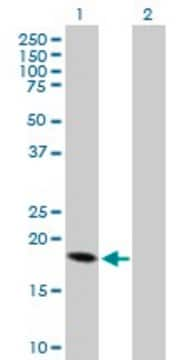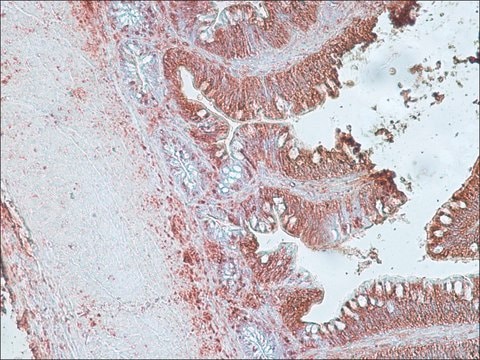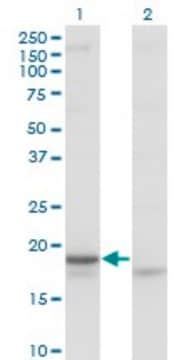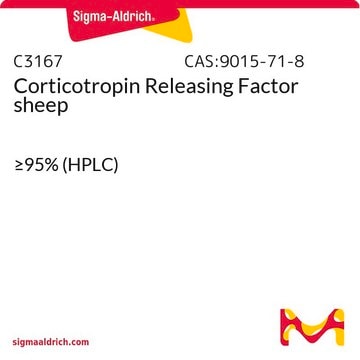C3042
Corticotropin Releasing Factor human, rat
≥95% (HPLC), powder
Synonym(s):
CRF, CRH
About This Item
Recommended Products
biological source
human
rat
Quality Level
Assay
≥95% (HPLC)
form
powder
mol wt
4757.45
storage condition
(Keep container tightly closed in a dry and well-ventilated place)
technique(s)
activity assay: suitable
solubility
water: 1.00-1.04 mg/mL, colorless
UniProt accession no.
storage temp.
−20°C
InChI key
VXFVFWFSJFSXHN-FAUHKOHMSA-N
Gene Information
human ... CRH(1392)
Looking for similar products? Visit Product Comparison Guide
Amino Acid Sequence
General description
Research area: Neuroscience
Application
- as a component in Dulbecco′s modified eagle medium (DMEM) for incubating lung explants
- as a component in serum-free complete medium for isolation and culturing of fetal distal lung epithelial cells
- in the synthesis of the corticotropin-releasing factor(CRF)-TAMRA 1 mixture
- in chronic intracerebroventicular administration, to study its effect on hypoxia in hippocampus
Biochem/physiol Actions
Other Notes
antibody
Storage Class Code
11 - Combustible Solids
WGK
WGK 3
Flash Point(F)
Not applicable
Flash Point(C)
Not applicable
Personal Protective Equipment
Choose from one of the most recent versions:
Certificates of Analysis (COA)
Don't see the Right Version?
If you require a particular version, you can look up a specific certificate by the Lot or Batch number.
Already Own This Product?
Find documentation for the products that you have recently purchased in the Document Library.
Customers Also Viewed
Our team of scientists has experience in all areas of research including Life Science, Material Science, Chemical Synthesis, Chromatography, Analytical and many others.
Contact Technical Service
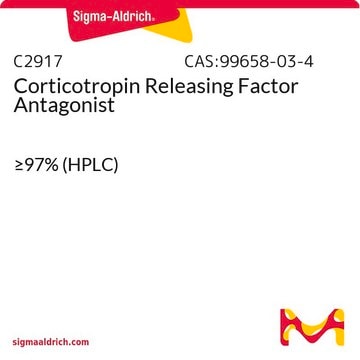
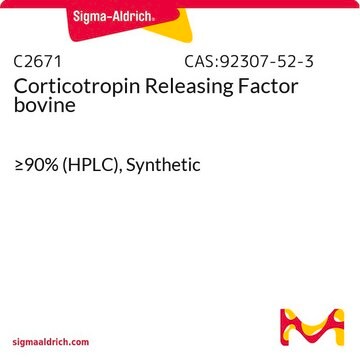
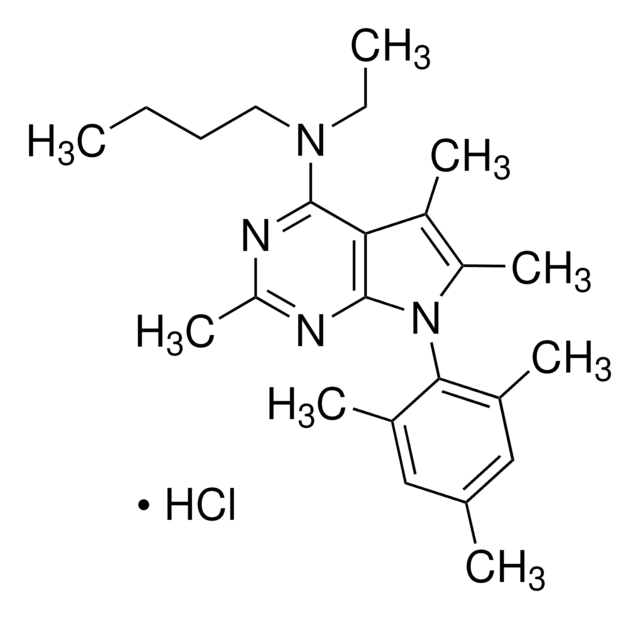

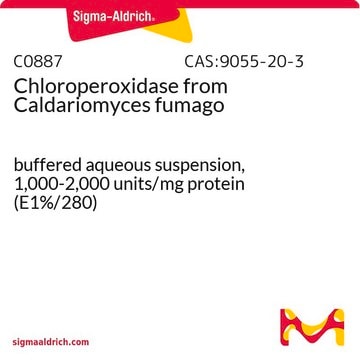
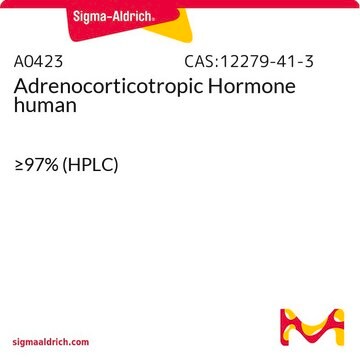


![[Arg8]-Vasopressin acetate salt ≥95% (HPLC)](/deepweb/assets/sigmaaldrich/product/structures/282/717/a4c16d4f-e168-4d84-a0e3-59de3e06251e/640/a4c16d4f-e168-4d84-a0e3-59de3e06251e.png)
